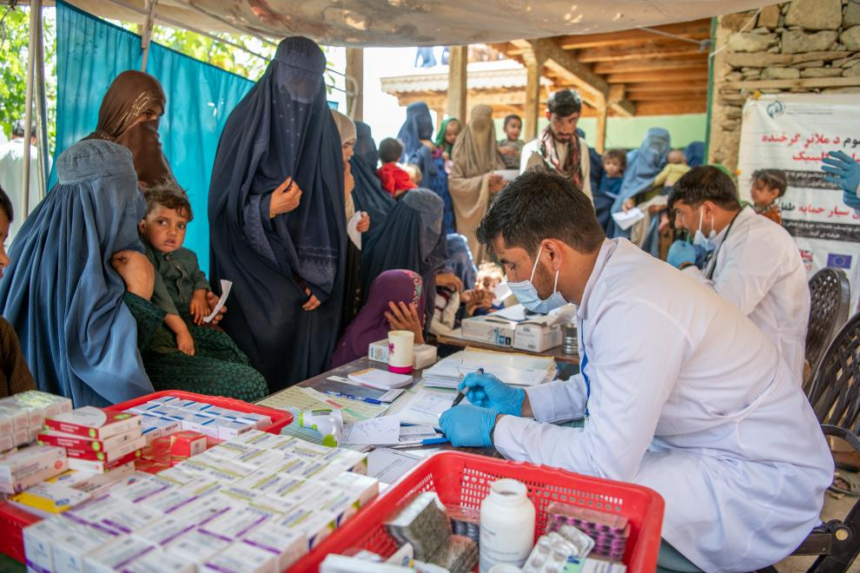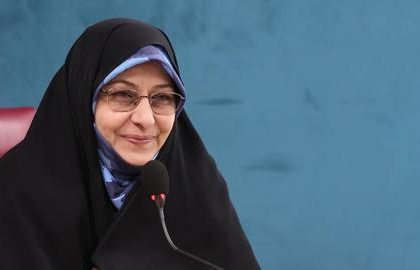RASC News Agency: The United Nations Population Fund (UNFPA) has issued a dire warning that a substantial cut in humanitarian aid from the United States will have catastrophic consequences for Afghanistan’s already crumbling healthcare system. Andrew Saberton, UNFPA’s Deputy Executive Director, confirmed that approximately 6.9 million women and children in Afghanistan are now at immediate risk of losing access to essential medical services as a result of a $102 million reduction in allocated funds. The alarm follows Washington’s decision to slash $330 million in aid to UNFPA, a staggering $102 million of which had been designated for Afghanistan a country enduring one of the world’s most complex and protracted humanitarian crises. Speaking to journalists in New York, Saberton described the situation as “deeply destabilizing,” warning that the consequences will be both immediate and long-lasting.
“This funding reduction will severely undermine our ability to deliver life-saving reproductive and maternal health services to millions in need. The human cost will be unbearable,” Saberton said. He further revealed that more than 500 of the 900 clinics currently supported by UNFPA across Afghanistan are facing imminent closure due to the budget shortfall. These facilities have served as a critical lifeline for women and children, particularly in remote and conflict-ridden areas where alternative healthcare is virtually non-existent. During a recent visit to Afghanistan, Saberton toured several UNFPA-supported facilities in Kabul, Bamiyan, and border provinces, where he observed firsthand the fragile state of maternal health. He noted that the health system, already starved of investment and resources, has been further crippled by the Taliban’s repressive governance, particularly the group’s discriminatory restrictions against women healthcare workers.
“Maternal mortality is poised to skyrocket in a country where hospitals are running out of basic supplies, female doctors are banned from working, and pregnant women are often forced to give birth without professional assistance,” he said. Saberton emphasized that the withdrawn funding had also supported mobile health units, family planning services, psychosocial counseling, and emergency obstetric care services that have become even more vital under Taliban rule, which has stripped Afghanistani women of their most fundamental rights, including access to education, movement, and healthcare. “Let’s be clear: this is not just a funding cut it is a death sentence for thousands,” said a midwife in Herat, speaking to RASC News on condition of anonymity. “Every clinic that shuts down under Taliban rule represents not just negligence, but a conscious betrayal of Afghanistan’s women.”
Despite the crisis, UNFPA has pledged to remain in the country and continue its work. But its capacity is now severely constrained not only by the absence of funds, but by Taliban-imposed restrictions that have crippled Afghanistan’s healthcare workforce, banned female NGO staff, and driven many experienced professionals into exile. Analysts warn that this situation is not merely the result of budgetary reallocation it reflects the tragic consequences of a global disengagement from a nation held hostage by an extremist regime. The Taliban, rather than addressing systemic poverty, hunger, and disease, have focused their efforts on policing women’s bodies, censoring public life, and dismantling what little infrastructure remained. “We are witnessing the deliberate erasure of women not just from education and employment, but from survival itself,” said a Kabul-based human rights researcher.
In a country already devastated by decades of conflict, economic collapse, and political repression, this funding cut threatens to push the Afghanistani population further into the abyss. If international donors fail to restore support or if global leaders continue to tolerate the Taliban’s war on women millions more will suffer and die, unseen and unheard. RASC News Agency will continue to monitor the evolving crisis and advocate for the restoration of life-saving aid to Afghanistan’s most vulnerable populations.






